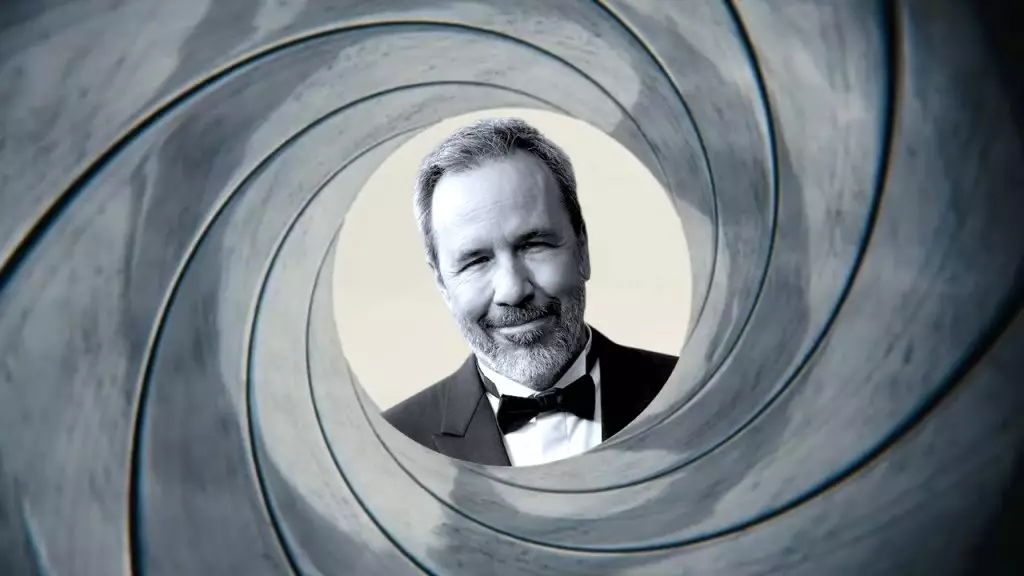In a surprising yet thrilling turn of events for the film industry, Denis Villeneuve has been handed the prestigious directorial reins to the James Bond franchise. While some fans celebrate this decision, it is crucial to scrutinize the potential ramifications of placing such a unique artist into the shoes of one of cinema’s most commercially successful icons. Villeneuve has long nursed a dream of directing a Bond film, as his affection for the franchise runs deep—stemming back to his childhood experiences with Sean Connery’s Bond. However, it begs the question: is Villeneuve’s artistry a fit for the well-established and traditional Bond ethos, or will it disrupt the very fabric of what fans cherish?
Villeneuve is well-regarded for his visionary storytelling in films like Dune, Arrival, and Blade Runner 2049. His keen eye for stunning visuals and immersive narratives creates a cinematic experience that is surreal and profound. Yet, one must wonder if his approach aligns with what audiences expect from a Bond film. Villeneuve’s fondness for layering complex themes might contend with the franchise’s prior emphasis on swift action, suave charm, and, occasionally, over-the-top spy antics. Will we see a more introspective Bond, or will Villeneuve embrace the adrenaline-driven essence of the franchise that has captivated audiences for decades?
The Challenge of Expectations
Vulnerability exists when adapting a blockbuster property, especially one that boasts a 60-year legacy. Villeneuve himself acknowledges the weight that comes with taking on such a revered character. In his statements, he expresses a profound respect for the series, and this reverence could either lead to a powerful film or become a major hindrance. The cinematic world is already rife with speculation over his interpretation—what will become of Bond’s classic characteristics? Villeneuve is quoted saying that “to him, [Bond] is sacred territory,” which raises the stakes even higher. If the audience perceives his work as a betrayal of Bond culture, could this damage a franchise that has been resilient through the years?
Another significant issue arises from Villeneuve’s puzzle of cinematic ambition juxtaposed against fan expectations. His inclination towards philosophical musings could potentially alienate viewers who simply aspire to experience an exciting action-thriller. Imagine a contemplative Bond movie where the protagonist sinks into an existential crisis amidst high-stakes international espionage. Will fans resonate with a more pensive take on a character traditionally associated with luxurious escapades and relentless pursuits? Villeneuve’s intention to “honor the tradition and open the path for new missions” introduces an unpredictable element; it is a gamble with radical potential.
An Evolving Landscape of Bond
Moreover, the role of James Bond should not exist in a vacuum. As the franchise transitions to Amazon MGM Studios, the power dynamics and market expectations may drive Villeneuve to adopt a distinct narrative architecture. The challenge of retelling a storied saga in an era characterized by globalization is no small feat. Villeneuve must navigate the contemporary cultural landscape, ensuring that the new Bond resonates with today’s more diverse audiences while infusing his distinct lens.
Simultaneously, the conversation around casting continues to loom large, especially following Daniel Craig’s departure. Will Villeneuve prioritize finding a performer who can embody the classic charm, or will he seek a more unconventional talent to revolutionize the identity of Bond? Tantalizing discussions about potential actors, including his Dune collaborator Timothée Chalamet, hint at the broader desire for bonds that transcend tradition.
The Role of Directors in Franchise Evolution
Ultimately, Villeneuve’s entry into the Bond realm raises essential questions about the role of directors in managing the evolution of long-standing franchises. Villeneuve, an artist celebrated for creating lyrical and thought-provoking cinema, may be poised to upend the traditional mold—but only if he passionately grapples with the expectations resting on him. His directorial vision may either be a robust celebration of the legacy or a transformative experiment that alienates loyalists.
In an industry where the stakes of creative risk remain high, one must wonder if Villeneuve’s audacious ambition is enough to navigate the intricacies of Bond—or if it sets up a potential landmine. As he stands before the shimmering possibilities, the path forward for a filmmaker cherished for his abstract narrative prowess is fraught with excitement and trepidation. The cinematic joy that he yearns to impart may hinge on achieving a delicate balance between invention and tradition—a task that is, undoubtedly, monumental.

Leave a Reply